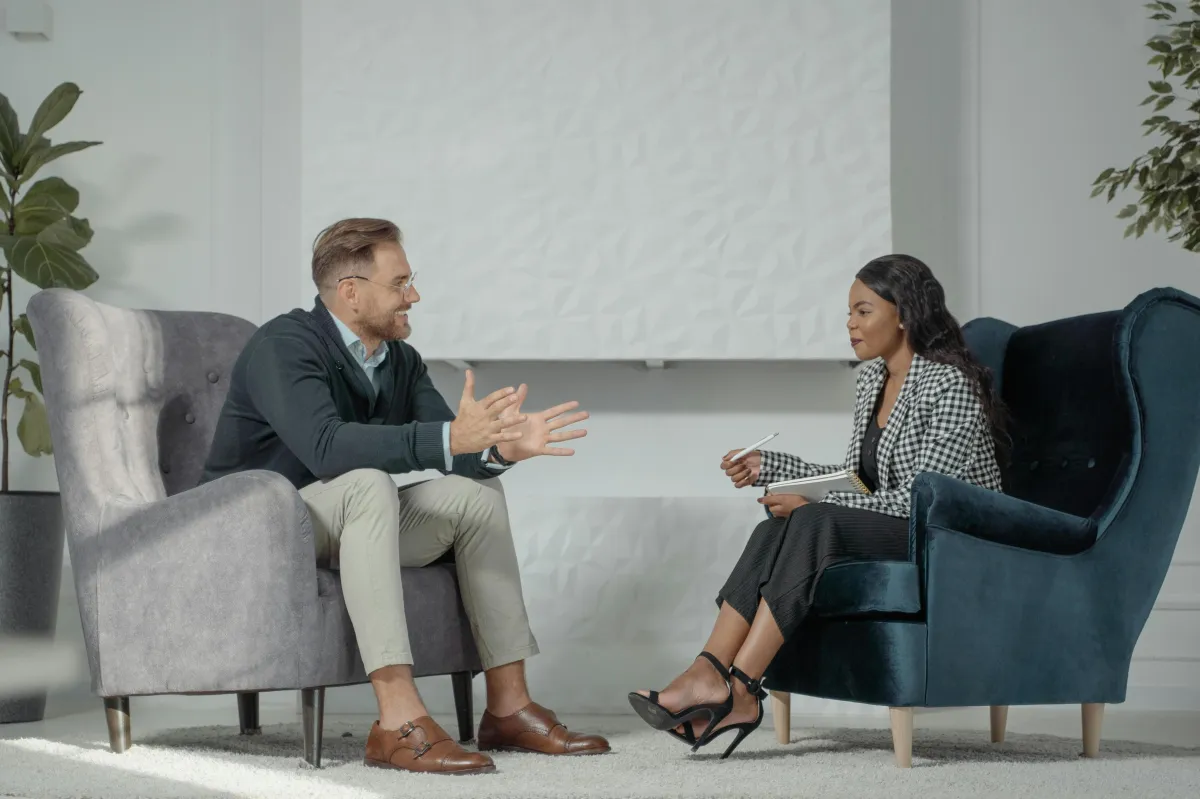
Understanding Your Customers Starts With Getting Them to Open Up
Ever finish a customer interview thinking "well, that was a waste of time"? You're not alone. Most researchers walk away with surface-level insights that everyone already knew.
Trust is the invisible barrier between generic feedback and genuine insight. When customers don't trust you, they give you the answers they think you want to hear, the socially acceptable responses that reveal nothing new.
But when real trust exists, people share the uncomfortable truths - how they actually behave versus how they think they should behave
Building this trust requires moving beyond traditional interview approaches that feel like interrogations. Understanding consumer psychology means creating psychological safety where people feel genuinely heard rather than studied.
Researchers who consistently uncover breakthrough insights have mastered the art of earning trust quickly, creating conditions where customers feel safe to contradict themselves, admit confusion, or reveal behaviours they're not proud of.
This is where the transformative insights hide - in the trusted space between what people say they do and what they actually do.
Lack of Rapport and Psychological Safety
Here's the brutal truth: if your interviewee doesn't feel safe, you're getting nothing useful and you won’t understand your customers.
It's basic human psychology - we only open up to people we trust. When customers sense even a whiff of judgment or discomfort, they slam shut faster than you can say "user research."
Amy Edmondson's foundational work found psychological safety is absent, people engage in "self-silencing" or defensive behaviours, withholding their true thoughts and feelings. Those invisible psychological barriers - anxiety, self-doubt, fear of looking stupid - create walls you can't see but absolutely will feel.
Qualitative research in healthcare and team settings (Back, A.L., 2009) shows that even a subtle sense of judgment or discomfort, whether from an interviewer's tone, body language, or past negative experiences, leads participants to remain silent or non-committal rather than risk vulnerability.
Even your body language can work for or against you.
Think about it - when you meet a stranger at a party, don't you instinctively mirror their energy, lean in when they're speaking, and use open gestures to signal you're approachable? You naturally create rapport because you want that person to feel comfortable with you.
Customer interviews work exactly the same way. Your participant is essentially a stranger you're asking to share personal, sometimes vulnerable information about their experiences and behaviours.
If you wouldn't sit rigidly with crossed arms whilst chatting to someone new at a social gathering, why would you do it in an interview where the stakes for openness are even higher?
Sit there with stiff posture or avoid eye contact, and you've just told their nervous system "this isn't safe." Your participant's brain is constantly scanning for threat signals, and if it detects any, the drawbridge goes up.
They'll give you surface-level responses whilst their real insights remain locked away behind psychological defences you've inadvertently triggered.
Humans are wired to avoid social threats. When we sense judgment or discomfort, our brain’s threat detection system (including the amygdala) is activated, leading to defensive behaviours like withdrawal or guarded answers.
The fix?
Make them feel heard before you make them talk. Amy Edmondson's research on psychological safety shows that people need to know they can speak up without embarrassment or punishment before they'll give you anything real.
Here's where the science gets fascinating - when you subtly mirror their language patterns or body language, something called limbic synchrony kicks in. Chartrand & Bargh's research on the "chameleon effect" demonstrates that your brains literally start syncing up, trying to find the same rhythm.
This neurological alignment creates an unconscious sense of connection and safety. Suddenly the transformation happens - they're leaning forward, sharing stories, giving you the insights that matter.
The secret is to stop performing "professional interviewer" and start being genuinely curious about their world. Your job isn't to extract information like you're conducting an interrogation. Create the conditions where they actually want to share it.
Check out our practical digital course - designed to rapidly boost your interview skills, confidence, and results - taking your qualitative research to the next level!
Understand consumer behaviour to understand your customers!